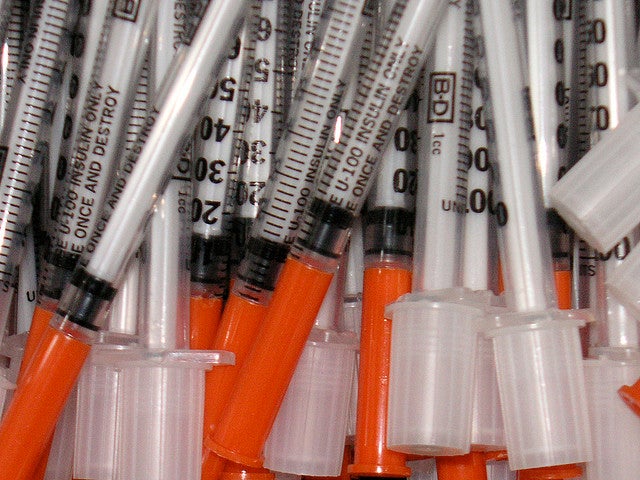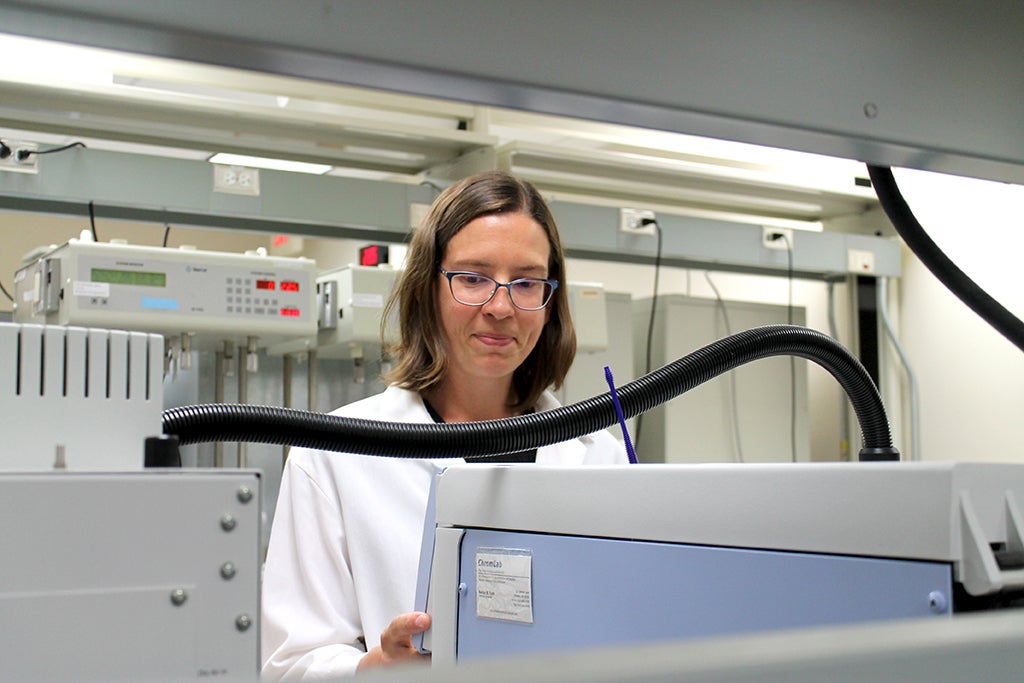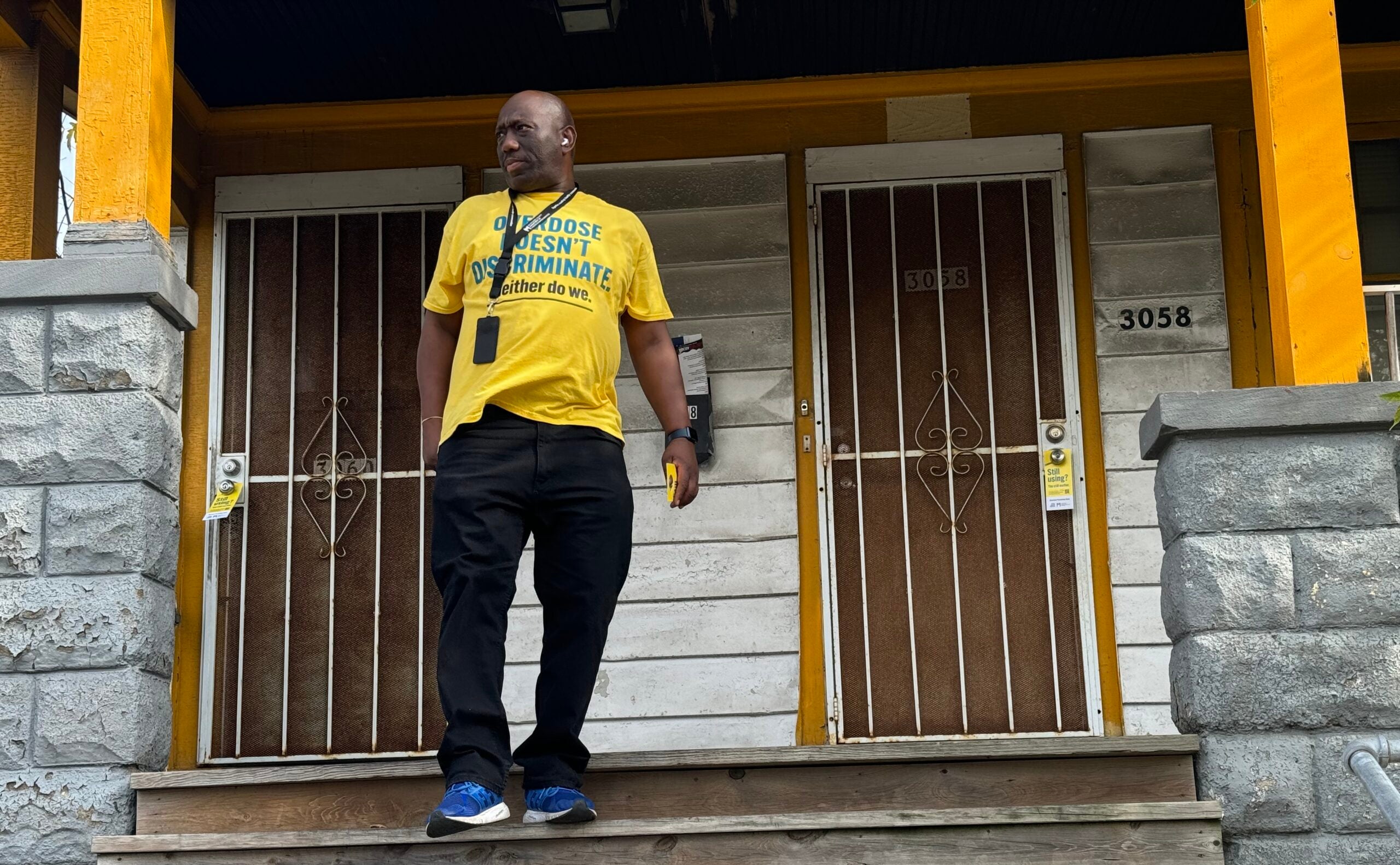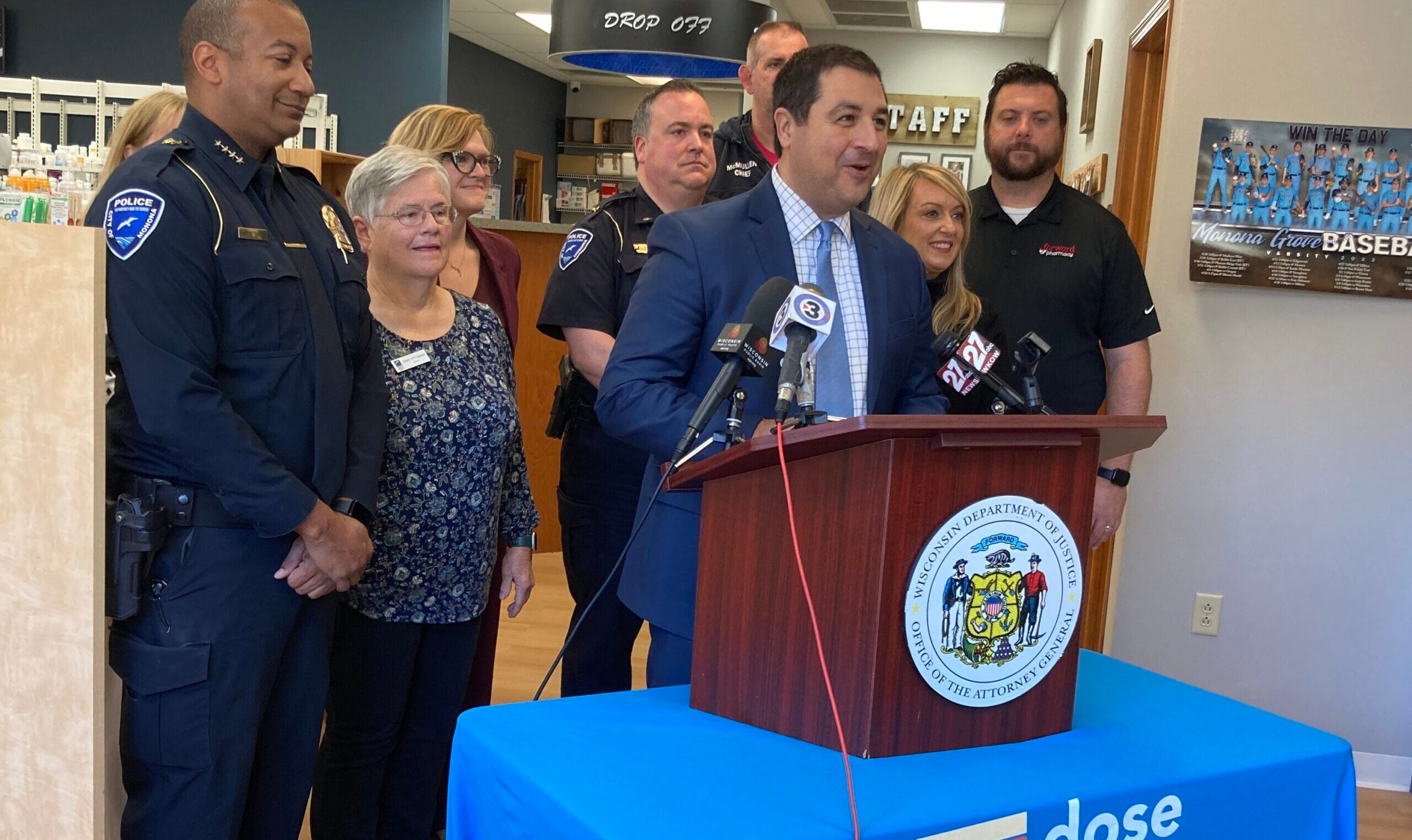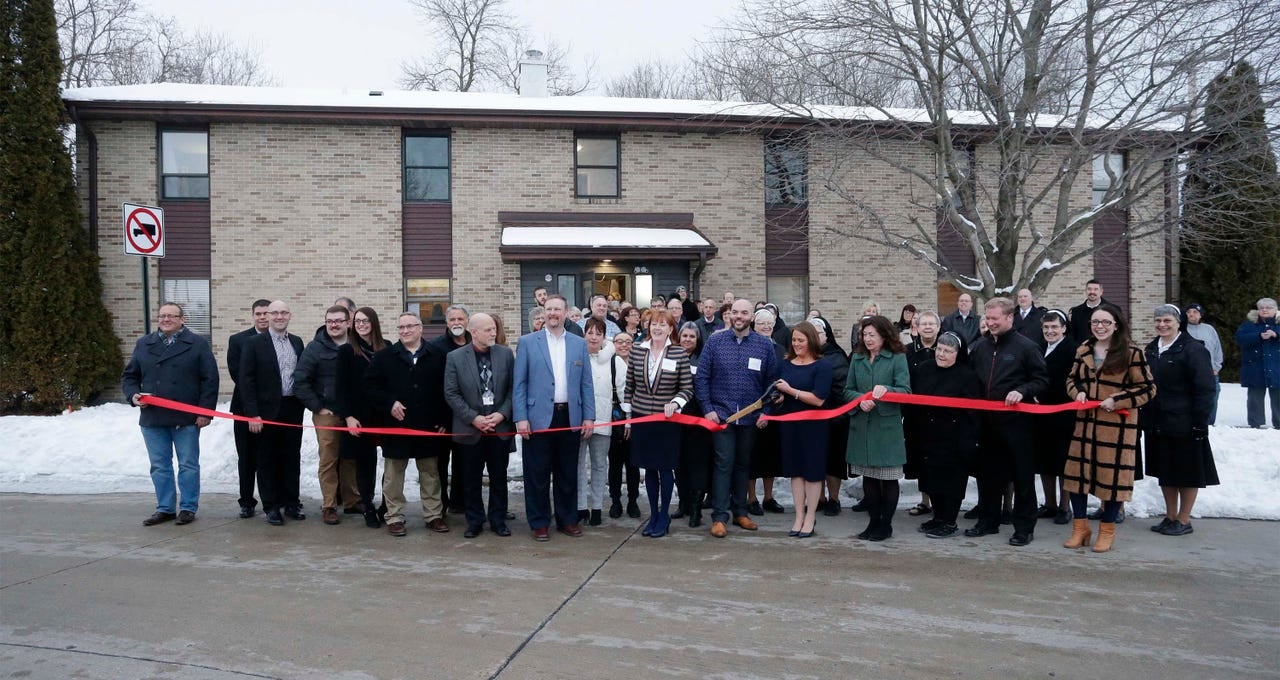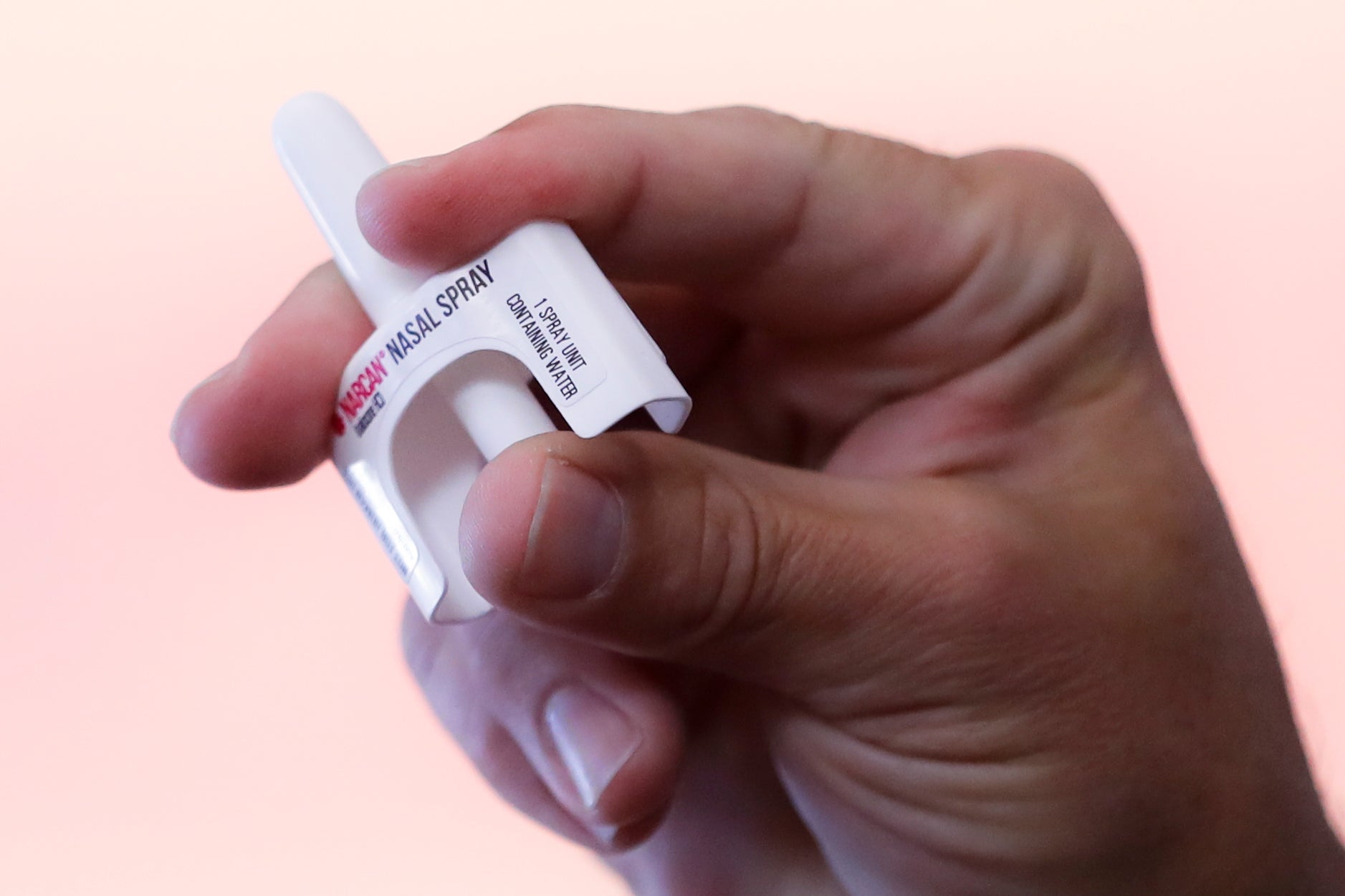Needle exchange programs for drug addicts are an obstacle to fighting the rise of the heroin trade in Wisconsin, according to a recent FBI study.
The FBI’s Wisconsin Heroin Assessment released this week catalogues the reasons for the rise in heroin use in the state over the past few years and the illegal trade that fuels it. One of the report’s authors, John Kumm, said it’s clear that needle exchange programs have distributed millions of needles and the rigs used for cooking heroin to inject it, which he said does make it easier for addicts to use the heroin they buy.
“What we found in our research is they just lower the logistical barrier where a user doesn’t have to go and find the stuff on their own,” said Kumm. “It’s at one central location for them and given for free where they may have to purchase needles on their own.”
Stay informed on the latest news
Sign up for WPR’s email newsletter.
But most addicts who use needle exchange programs usually don’t have the money to buy new needles, and without access to an exchange, they use old needles that spread diseases like HIV and Hepatitis C.
Scott Stokes of the AIDS Resource Center of Wisconsin said there’s no evidence the programs increase the number of addicts. He said the FBI report ignores the fact that addicts who get free needles also get access to treatment to help them kick the habit.
“We have several hundred drug treatment referrals annually from people who use drugs who are looking for services,” said Stokes. “A lot of times we’re the only place they know to go to because they don’t normally go to other kinds of organizations or physicians’ offices to seek out those kinds of services.”
The FBI report acknowledges that the exchange programs help reduce the spread of disease, and authors of the report say the impact of treatment programs were not part of the assessment.
Wisconsin Public Radio, © Copyright 2025, Board of Regents of the University of Wisconsin System and Wisconsin Educational Communications Board.
